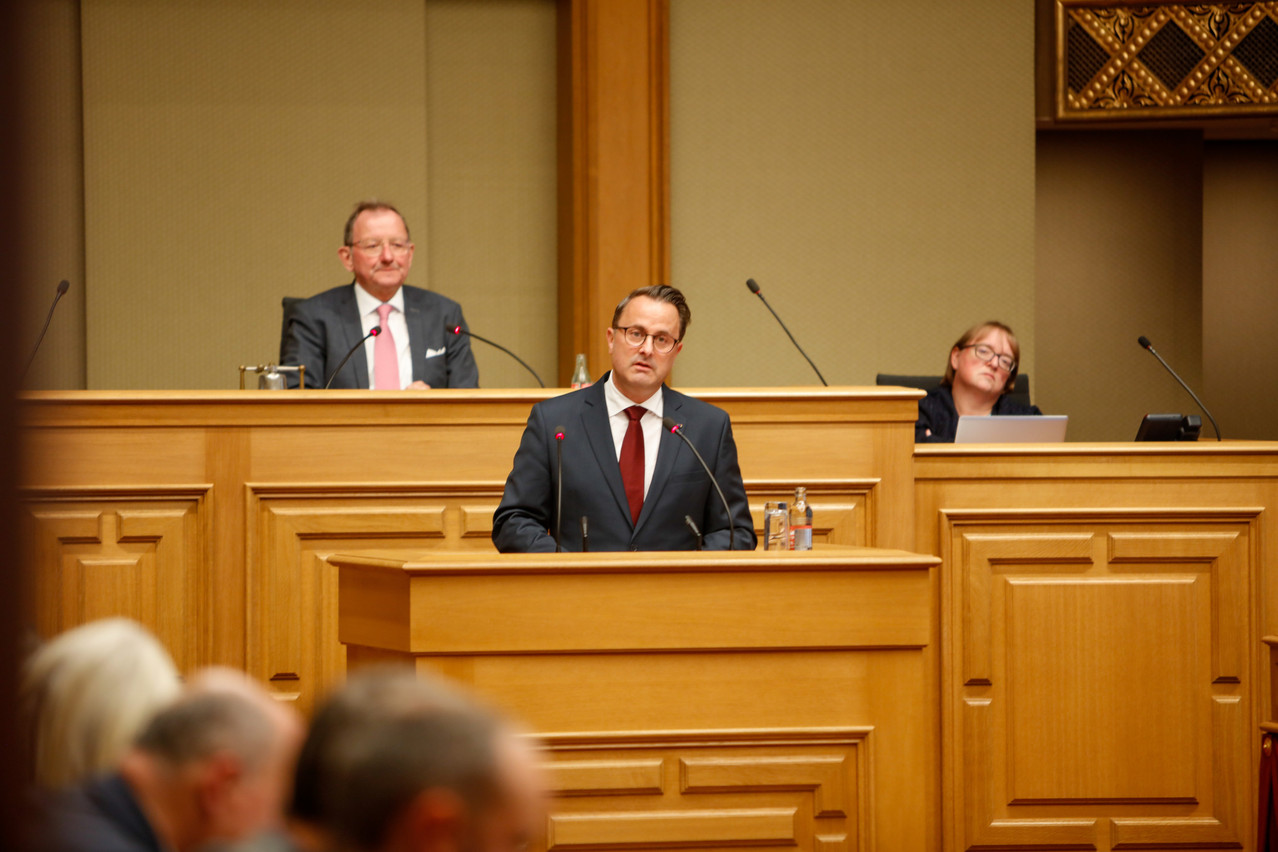The State of the Nation speech is not only be an opportunity to look back at the past twelve months but also at a whole legislative term for the DP, déi Gréng and LSAP coalition formed in 2018. The twelve-month period has been marked by protests at the sanitary pass introduced at the height of the covid-19 pandemic, two tripartite agreements on energy prices and inflation following the Russian invasion in Ukraine, and a housing crisis that has permeated the grand duchy since before the current government came into power, to name but a few.
Housing, tax reforms, tripartite
The housing problem has seen some recent developments, with the presentation of a and the introduction of a new land mobilisation tax and a tax on the non-occupation of dwellings. While these changes aim to “eliminate the fundamental injustices of the current system” as home affairs minister Taina Bofferding (LSAP) puts it, the tax rates might dissuade private owners more than major developers. A for tenants was also presented last week, as another means to mitigate the housing crisis.
For the main opposition party CSV, “it is not enough. Interest rates are rising and the situation is catastrophic. The state is not building fast enough, it should work with private investors,” parliamentary faction leader Martine Hansen tells us.
The energy and cost-of-living crisis have also marred 2022, resulting in two tripartite agreements. The first one in April postponed the indexation of wages to give businesses a break--though the majority labour union of the country OGBL did not sign it--and introduced a discount for fossil fuels. The , in September, gathered the support of all tripartite factions, with a fuel discount, lower VAT rates and the preservation of Luxembourg’s automatic indexation system.
Another pledge that still awaits an update is . Former finance minister (DP) had said the bill had to be put on ice as the country dealt with the pandemic and ensuing economic impact. The three coalition parties have different positions on this: the DP is against tax increases and an inheritance tax or a tax on the wealth of private households, while déi Gréng hope for VAT reductions on green alternatives. The LSAP supports an increase in the progressiveness of income tax among others changes.
Symbolic versus structural pledges
Climate change is also bound to take a substantial place in Bettel’s speech. Coalition partners set different priorities, which now may play a role for the next elections: “On the climate, the latest report published last week showed that the objectives have not yet been reached, particularly in the industry and construction sectors,” says MP (déi Gréng).
Other topics like health--with the pending vaccine mandate, attractiveness of hospitals for doctors, and slow digitalisation of administrative papers--or the legitimisation of cannabis were also part of the coalition agreement.
Whether the government will opt to adopt its more symbolic pledges--like the cannabis law--or whether it will begin large structural changes only a few months ahead of the start of election campaigns remains to be seen.
“If I were the prime minister I would also talk about agriculture at the level of local production and consumption, because it is a sector that must be supported,” says MP Gilles Baum (DP).
Ultimately, though, not many major announcements are expected to be made, Hansen reckons. “We have heard that there could be tax aid for single-parent families in particular, but in principle everyone should be able to get a tax break.”
Thill on the other hand, says she expects “a great speech of solidarity, solidarity among citizens but also with other European states. The context is different from last year's state of the nation address.”
Following the address--which will then be debated in parliament on Wednesday 12 October and Thursday 13 October--finance minister (DP) will present the annual state budget for 2023.
